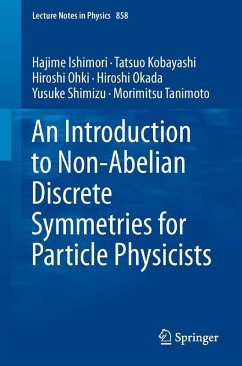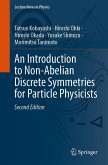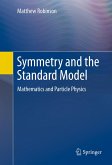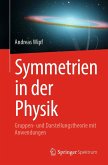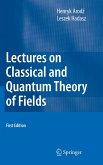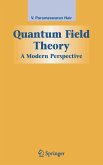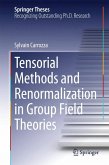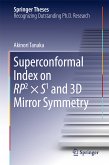Indeed, non-Abelian discrete symmetries are considered to be the most attractive choice for the flavor sector: model builders have tried to derive experimental values of quark and lepton masses, and mixing angles by assuming non-Abelian discrete flavor symmetries of quarks and leptons, yet, lepton mixing has already been intensively discussed in this context, as well. The possible origins of the non-Abelian discrete symmetry for flavors is another topic of interest, as they can arise from an underlying theory - e.g. the string theory or compactification via orbifolding - thereby providing a possible bridge between the underlying theory and the corresponding low-energy sector of particle physics.
This text explicitly introduces and studies the group-theoretical aspects of many concrete groups and shows how to derive conjugacy classes, characters, representations, and tensor products for these groups (with a finite number) when algebraic relations are given, thereby enabling readers to apply this to other groups of interest.
Dieser Download kann aus rechtlichen Gründen nur mit Rechnungsadresse in A, B, BG, CY, CZ, D, DK, EW, E, FIN, F, GR, HR, H, IRL, I, LT, L, LR, M, NL, PL, P, R, S, SLO, SK ausgeliefert werden.

